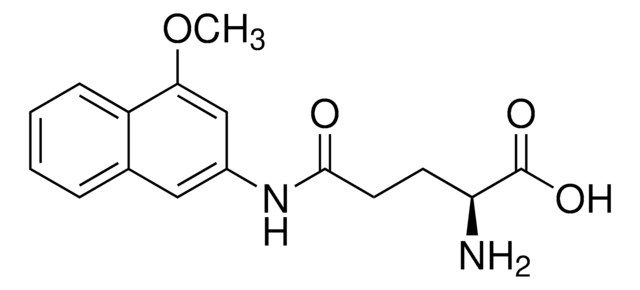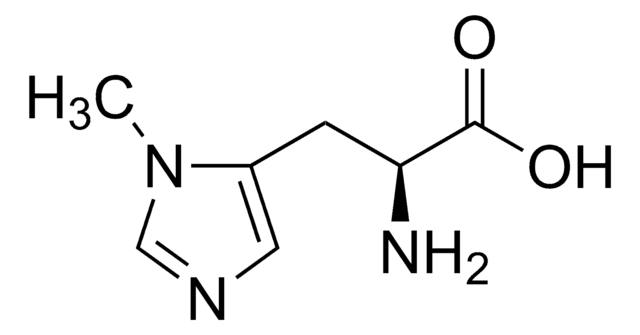H6647
L-Histidinol dihydrochloride
≥98% (TLC)
Synonym(s):
β-Aminoimidazole-4-propanol dihydrochloride, (S)-2-Amino-3-(4-imidazolyl)propanol dihydrochloride
About This Item
Recommended Products
product name
L-Histidinol dihydrochloride, ≥98 (TLC)
Quality Level
Assay
≥98% (TLC)
form
powder
color
white to off-white
mp
198-201 °C (dec.) (lit.)
application(s)
cell analysis
SMILES string
Cl[H].Cl[H].N[C@H](CO)Cc1c[nH]cn1
InChI
1S/C6H11N3O.2ClH/c7-5(3-10)1-6-2-8-4-9-6;;/h2,4-5,10H,1,3,7H2,(H,8,9);2*1H/t5-;;/m0../s1
InChI key
FRCAFNBBXRWXQA-XRIGFGBMSA-N
Gene Information
human ... HRH1(3269)
mouse ... HRH1(15465)
rat ... HRH1(24448)
Looking for similar products? Visit Product Comparison Guide
Application
- as a reagent in urinary metabolite analysis
- for making DT40 knockout cells, where cells were selected in 1mg/ml histidinol
- for inducing amino acid deprivation in HepG2 cells
Biochem/physiol Actions
Signal Word
Warning
Hazard Statements
Precautionary Statements
Hazard Classifications
Eye Irrit. 2 - Skin Irrit. 2 - STOT SE 3
Target Organs
Respiratory system
Storage Class Code
11 - Combustible Solids
WGK
WGK 3
Flash Point(F)
Not applicable
Flash Point(C)
Not applicable
Personal Protective Equipment
Certificates of Analysis (COA)
Search for Certificates of Analysis (COA) by entering the products Lot/Batch Number. Lot and Batch Numbers can be found on a product’s label following the words ‘Lot’ or ‘Batch’.
Already Own This Product?
Find documentation for the products that you have recently purchased in the Document Library.
Our team of scientists has experience in all areas of research including Life Science, Material Science, Chemical Synthesis, Chromatography, Analytical and many others.
Contact Technical Service









